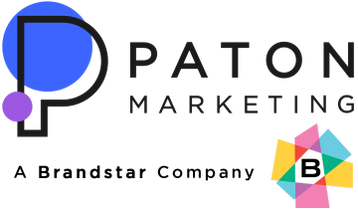Meta tags are essential to search engine optimization and your Google ranking. Meta tags are little snippets of content that help describe what your webpage is about to the search engine. Websites are designed strategically to optimize the content that the users are reading and help them navigate through the website itself. Tags are an additional fundamental way to help users navigate through.
There are a variety of different categories and tags that most websites use to help users navigate the web page. The main purpose of these is for organization and to enable users to explore similar topics on the website. Tags can be displayed at the beginning and or the end of an article. Even sometimes, these tags can appear along the right side or left side of the page.
At Paton Marketing, we are here to help you and your business understand more about the impact of tags and how they can impact your Google ranking. Tags are nothing new. Bloggers have been using them for years to help them link keywords into their article through tags. They are a very effective way to influence search engines to rank articles by using the keywords in their tags.
Continue reading to learn more about the impact of tags on Google ranking from the experts here at Paton Marketing.
How Can Meta Tags Boost SEO on Your Site?
Meta tags can have a significant influence on how your content appears in relevant searches on Google. Meta tags allow Google to understand the content on your pages so that when consumers search relevant topics your keywords appear.
Meta tags are an essential way to boost your keywords ranking. When the quality of your keywords in your meta tags is increased, Google is far more likely to place your site higher on the search results which will help your business and content get noticed first. When people are searching for something specific, they do not want to sift through a lot of searches. The right meta tags greatly influence the user’s experience.
Ninety-three percent of online experiences begin with users searching on a search engine. If you are looking to increase your Google ranking, meta tags are an essential tool to start with.
What are the Different Types of Meta Tags You Can Use?
There are many different meta tags that you can embed on your website. Here are a few to help get you started that are sure to improve your return on investment (ROI).
1. Title Tags
Title tags are essential for SEO and for the description of your page as they appear in the search engine results pages (SERPs). These tags should be unique and offer a description of the website and be a preview of your website.
2. Meta Description
The meta description is the text that appears below the title tag. A little more information on the title tag should be described and be built off of the title tag in this description. It is a great way to give Google and users more information that will draw people to your website. It is a critical way to gain leads to your website.
3. Canonical Tag
Canonical tags inform google that there are two separate pages so that your ranking is not penalized for duplicate content. These tags are helpful if you have similar products on multiple pages and have similar content under these tabs.
4. Alt Tag
Alt tags help boost user engagement by adding alternative text to images to optimize the content and let users know what they view.
5. Header Tag
Header tags break up larger pieces of content into smaller sections that improve the website’s overall user experience. They significantly impact SEO rankings and help users understand the information better because it has been broken into smaller sections.
A Few Tips for Meta Tags to Boost Google Rankings
Whether you are familiar or not with meta tags to boost your Google rankings, here are a few helpful tips to ensure that you can be ranked number one on the Google search engine algorithm.
1. Keep it Short
Google’s newest meta description length is about 158 characters. However, the meta tags should be less than 120 characters for mobile devices. Google will typically display about 55-61 characters on a desktop computer, so keeping your meta tags short and to the point will ensure they are producing the most traffic.
2. Use Relevant Keywords
Incorporating two to three keywords in your meta tags is vital to your Google ranking. It is essential to try and use these keywords naturally throughout your meta tags to flow as well. These keywords will also serve as the first impression people have of your website, so it is essential to make a good one.
3. Including Branding
When writing and incorporating content into your meta tags, be sure to include your logo, company name, and website URL. This will ensure that all of the needed information is presented clearly and present for consumers to interact with.
4. Use Modifiers
Modifiers are great for boosting your product or service with limited words. Here are a few great modifiers to help improve your Google ranking.
- Buy
- Top
- Best
- Easy
- How To
- Review
- Find
- Current
Final Thoughts
Overall, meta tags have a tremendous effect on Google rankings. They are a great way to get your name out there and ensure that you are presented at the top of Google’s search engines. If you are looking to increase your Google ranking through meta tags and or keywords, reach out to us at Paton Marketing for further assistance. Our talented team members have a wide variety of experience in improving a business’s Google ranking.
Remember, when looking to improve your ranking on Google, use relevant keywords and keep your meta tags short and to the point. You want to be sure that every word is relevant to your business and that the content is geared towards your clientele.

